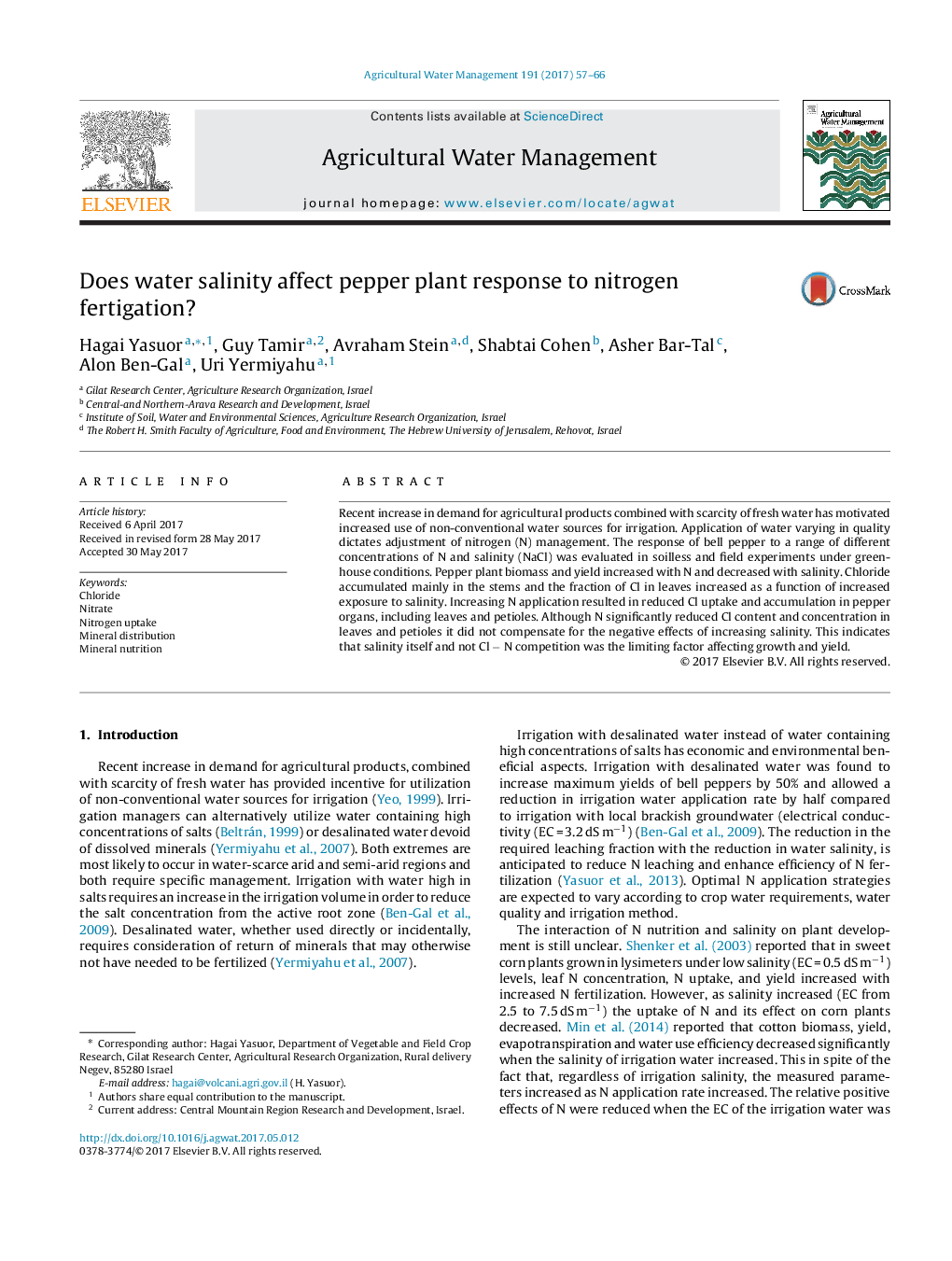| Article ID | Journal | Published Year | Pages | File Type |
|---|---|---|---|---|
| 5758294 | Agricultural Water Management | 2017 | 10 Pages |
Abstract
Recent increase in demand for agricultural products combined with scarcity of fresh water has motivated increased use of non-conventional water sources for irrigation. Application of water varying in quality dictates adjustment of nitrogen (N) management. The response of bell pepper to a range of different concentrations of N and salinity (NaCl) was evaluated in soilless and field experiments under greenhouse conditions. Pepper plant biomass and yield increased with N and decreased with salinity. Chloride accumulated mainly in the stems and the fraction of Cl in leaves increased as a function of increased exposure to salinity. Increasing N application resulted in reduced Cl uptake and accumulation in pepper organs, including leaves and petioles. Although N significantly reduced Cl content and concentration in leaves and petioles it did not compensate for the negative effects of increasing salinity. This indicates that salinity itself and not Cl â N competition was the limiting factor affecting growth and yield.
Related Topics
Life Sciences
Agricultural and Biological Sciences
Agronomy and Crop Science
Authors
Hagai Yasuor, Guy Tamir, Avraham Stein, Shabtai Cohen, Asher Bar-Tal, Alon Ben-Gal, Uri Yermiyahu,
